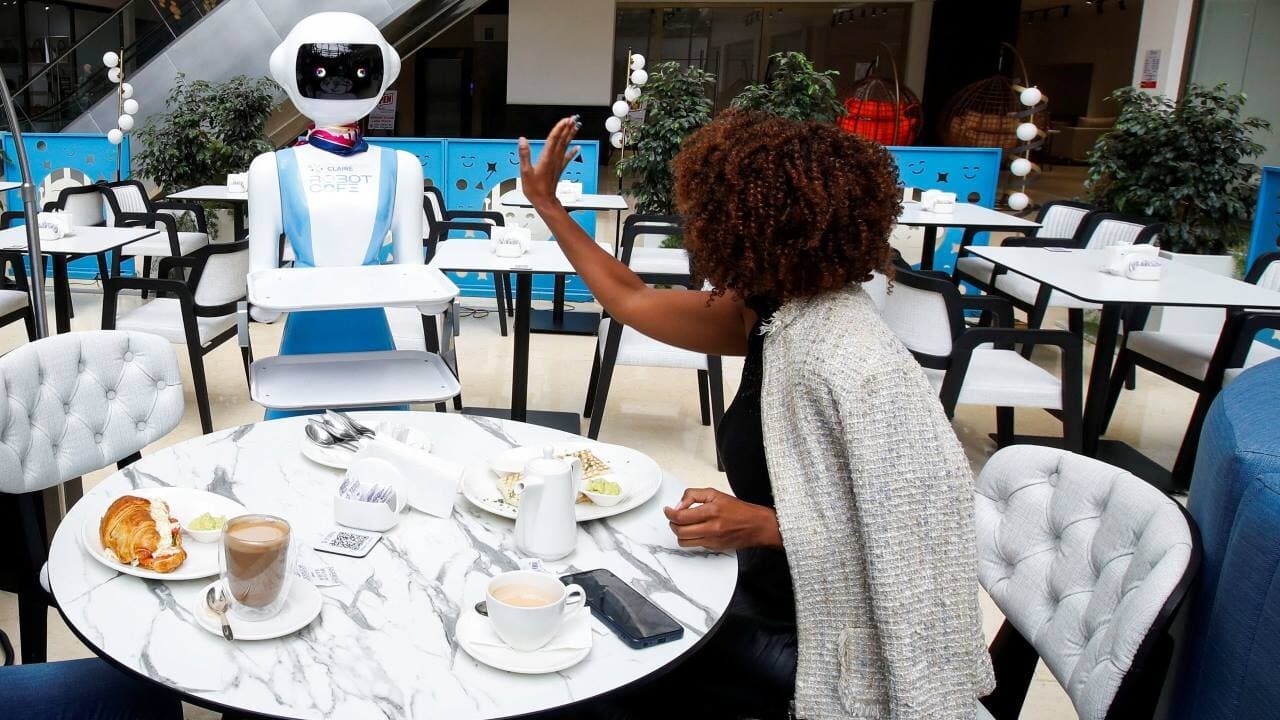
Kenya's first robot-staffed cafe is a hit, attracting visitors
What's the story
In Nairobi, Kenya's capital and the heart of East Africa's tech hub known as the Silicon Savanna, a unique dining experience is captivating locals and tourists alike.
The Robot Cafe, believed to be the first of its kind in East Africa, has integrated technology into its service by employing robots alongside human waiters.
These robots are not just functional but also serve as an attraction for customers intrigued by the futuristic concept.
Teamwork
Robots and humans work together at Nairobi cafe
The Robot Cafe is home to three robots named Claire, R24, and Nadia.
These robots are not designed for extensive conversation but can announce when an order is ready and greet customers with a simple "Welcome."
After receiving their food from the robot's tray, customers press an exit button.
The robots are controlled by human waiters using an iPad application.
Investment
Cafe owner sees this as investment, not cost-cutting measure
Mohammed Abbas, the owner of the Robot Cafe, views his robotic employees as an investment rather than a cost-cutting measure.
Despite the high costs associated with importing these robots from Asia and Europe, Abbas believes they have paid off due to increased customer interest.
"It was very expensive to import the robots," he admits but adds that his restaurant is now "often busy with curious customers" eager to experience this unique service.
Balance
Robots are not replacing human waiters
Despite the rise of automation, human waiters remain integral to the Robot Cafe's operations. They handle orders from customers who opt out of online ordering and personally deliver drinks.
The cafe's manager, John Kariuki, emphasizes that these robots are not intended to replace human staff.
"At no point are the robots able to fully function in all the services that are supposed to be ongoing in the restaurant without the human touch," he said.
Coexistence
Hospitality industry expert sees room for coexistence
Edith Ojwang, a hospitality industry expert, believes there's room for both robotic and human service in the sector.
She argues the diverse nature of customer preferences allows for this coexistence.
"We have clients who will prefer robotic service and full automation, while we also have clients who will prefer human service," she said.
This perspective suggests rather than posing a threat to human labor, robots could potentially enhance the dining experience by catering to a wider range of customer preferences.